Sem 1 Bible 11 Final
1/70
There's no tags or description
Looks like no tags are added yet.
Name | Mastery | Learn | Test | Matching | Spaced | Call with Kai |
|---|
No analytics yet
Send a link to your students to track their progress
71 Terms
Classical Apologetics
Uses logic and reasoning
Evidentialism
Shows evidence and facts
Reformed Apologetics
Stand on God’s word in Scripture
Fideism
Puts faith and trust at the forefront
“Defending Christian faith is the non-Christian world"/ Defense of the Christian faith is the definition of
Apologetics
The original Greek word apologia (from which we get the term apologetics) originated as a
Legal term
Not a function of apologetics
Winning an Argument
Apologetics was recognized as a specific discipline within the first couple centuries of the church
False
Considers that Christianity is known not just through reason
Persuasion
Reveals the irrationality of non-Christian belief systems
Refuatation
Demonstrates Christianity is not unreasonable and can be trusted
Defense
Shows Christianity is reasonable and offers good reasons to believe
Proof
Case from the Ground Up Point #1
Truth about reality is knowable
Case from the Ground Up Point #2
The opposite of true is false
Case from the Ground Up Point #3
It is true that the theistic God exists
Case from the Ground Up Point #4
If God exists, then miracles are possible
Case from the Ground Up Point #5
Miracles can be used to confirm a message from God
Case from the Ground Up Point #6
The New Testament is historically reliable
Case from the Ground Up Point #7
The New Testament says Jesus claimed to be God
Case from the Ground Up Point #8
Jesus’ claim to be God was miraculously confirmed by:
a. His fulfillment of many prophecies
b. His sinless and miraculous life
c. His prediction and accomplishment of His resurrection
Case from the Ground Up Point #9
Therefore, Jesus is God
Case from the Ground Up Point #10
Whatever Jesus (who is God) teaches is true
Case from the Ground Up Point #11
Jesus taught that the Bible is the Word of God
Case from the Ground Up Point #12
Therefore, it is true that the Bible is the Word of God (and everything opposed to it is false)
Reason is the sole test of truth
Rationalism
The belief that statements of fact or value are true from some perspectives but not from others
Relativism
A cultural movement that has applied relativistic thinking
Postmodernism
The study of knowledge
Epistemology
The study of the nature of reality
Metaphysics
Proper conduct in light of reality
Ethics
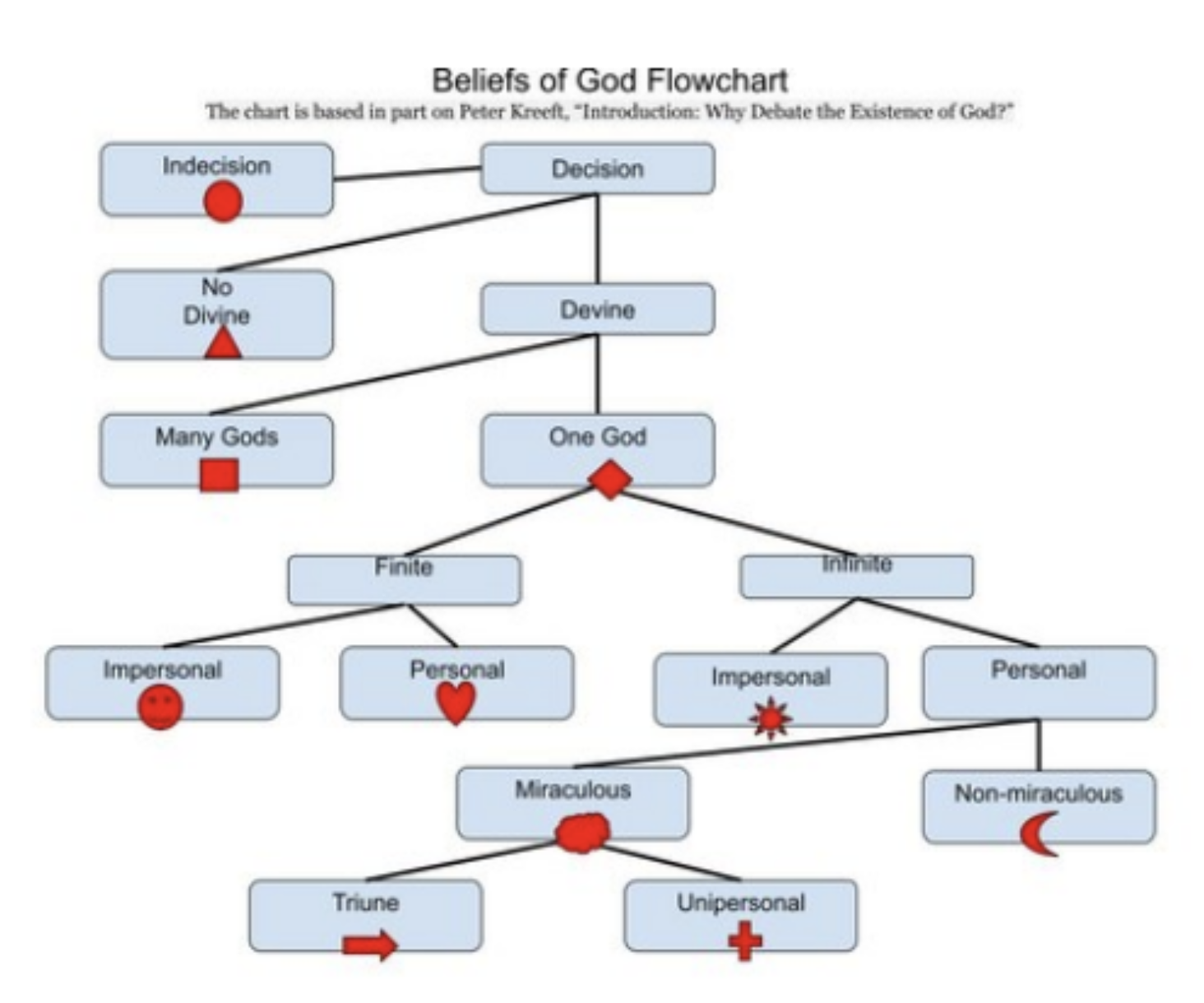
Circle
Agnosticism
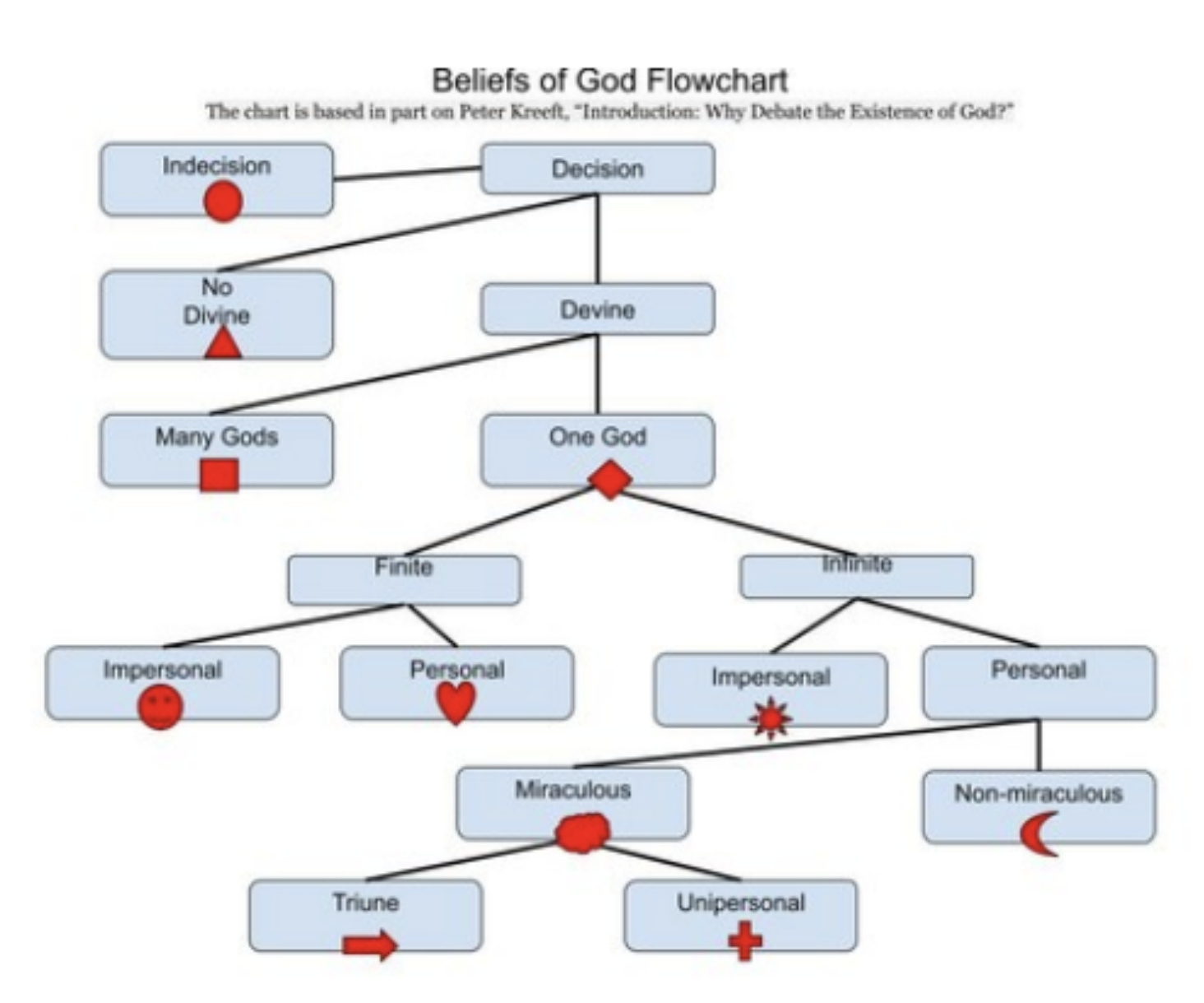
Triangle
Atheism
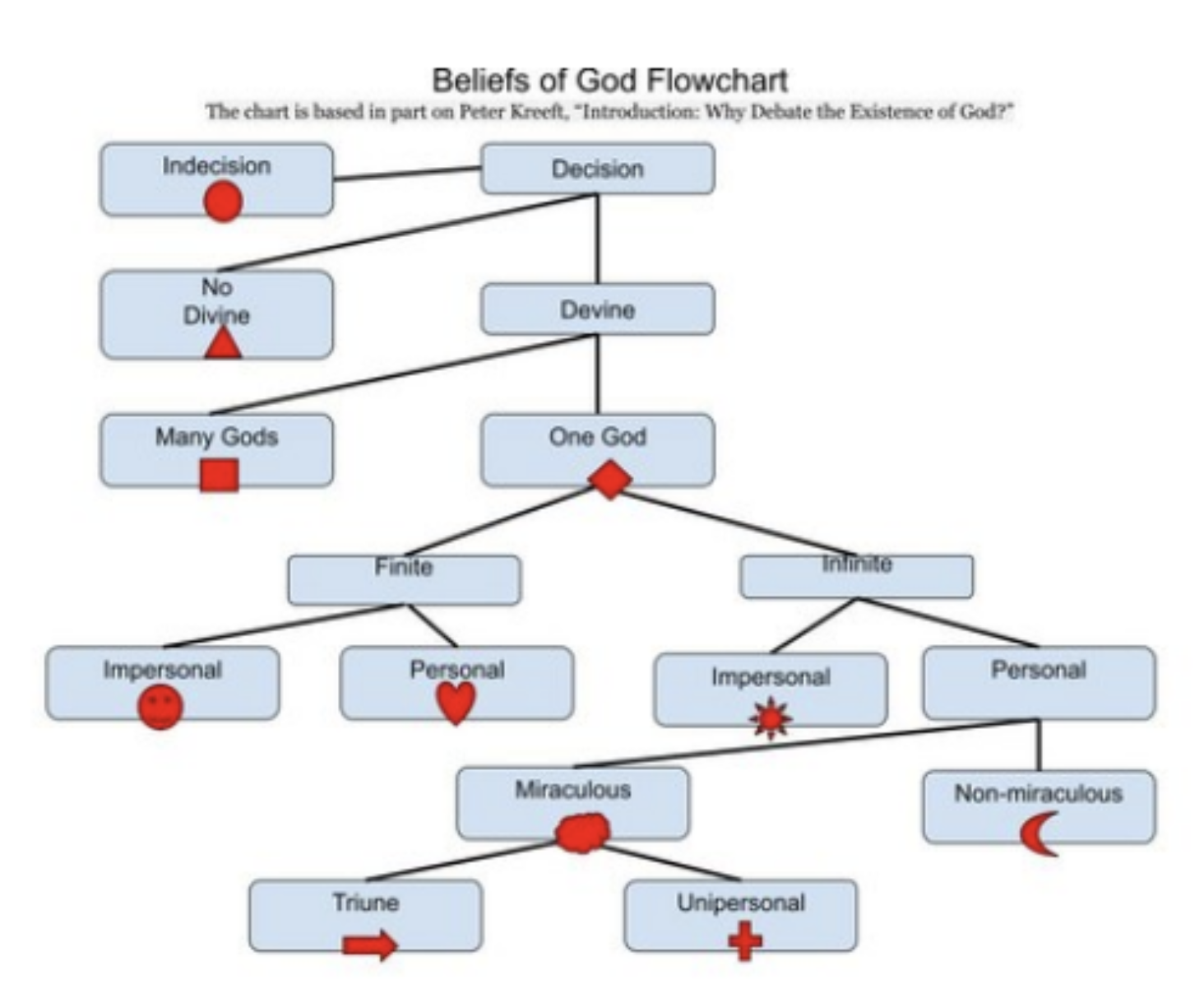
Square
Polytheism
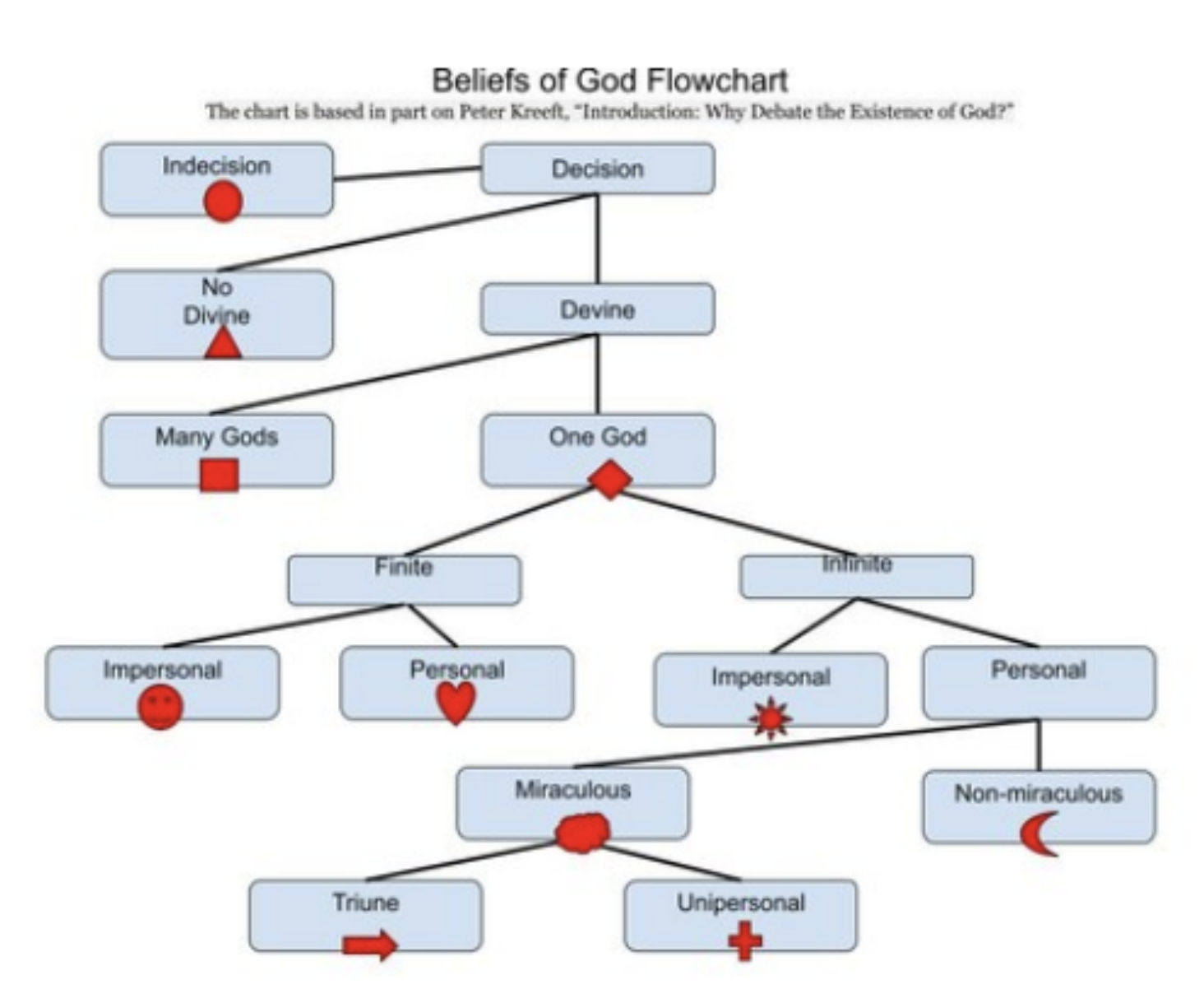
Diamond
Monotheism
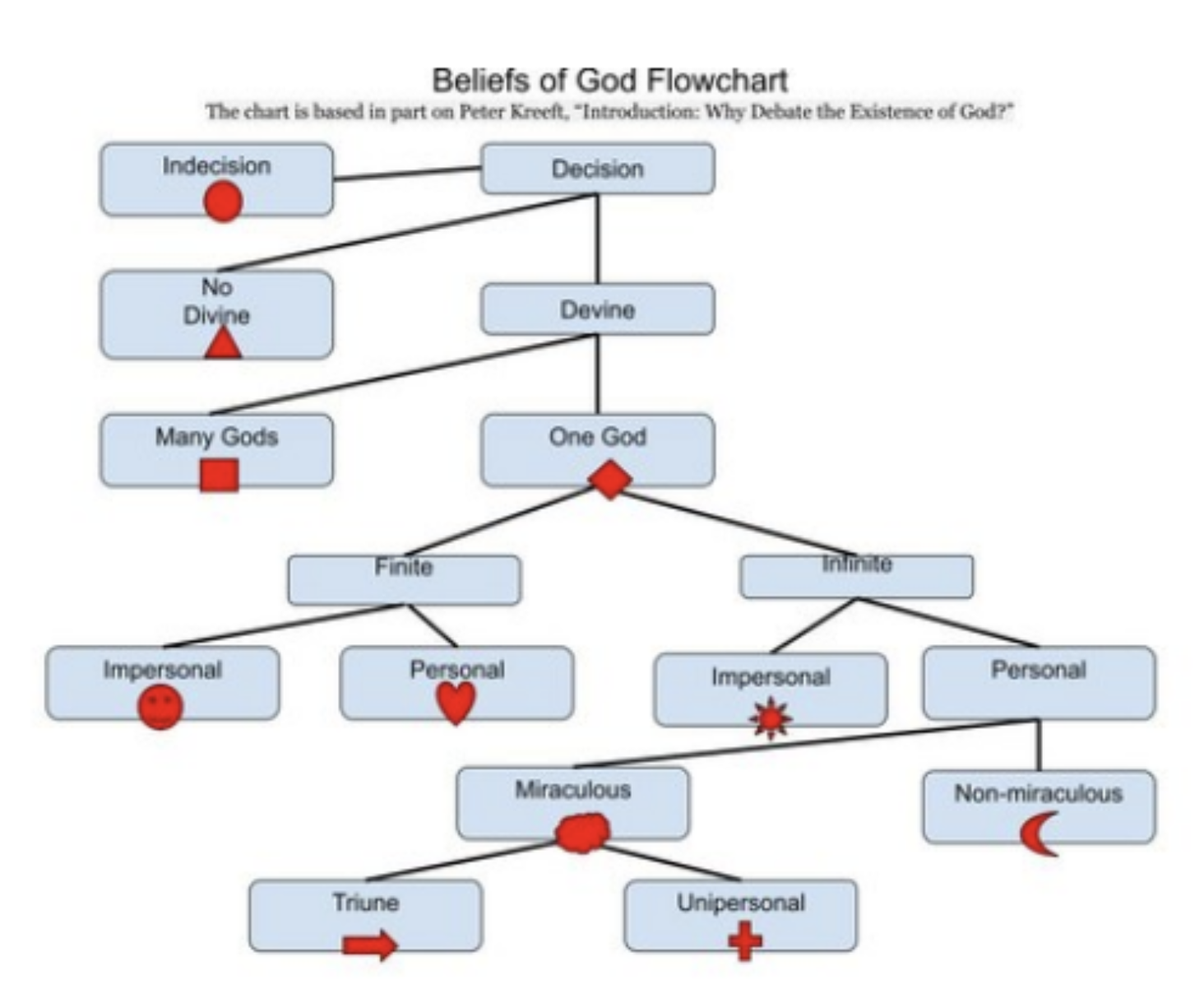
Smiley Face
Pantheism
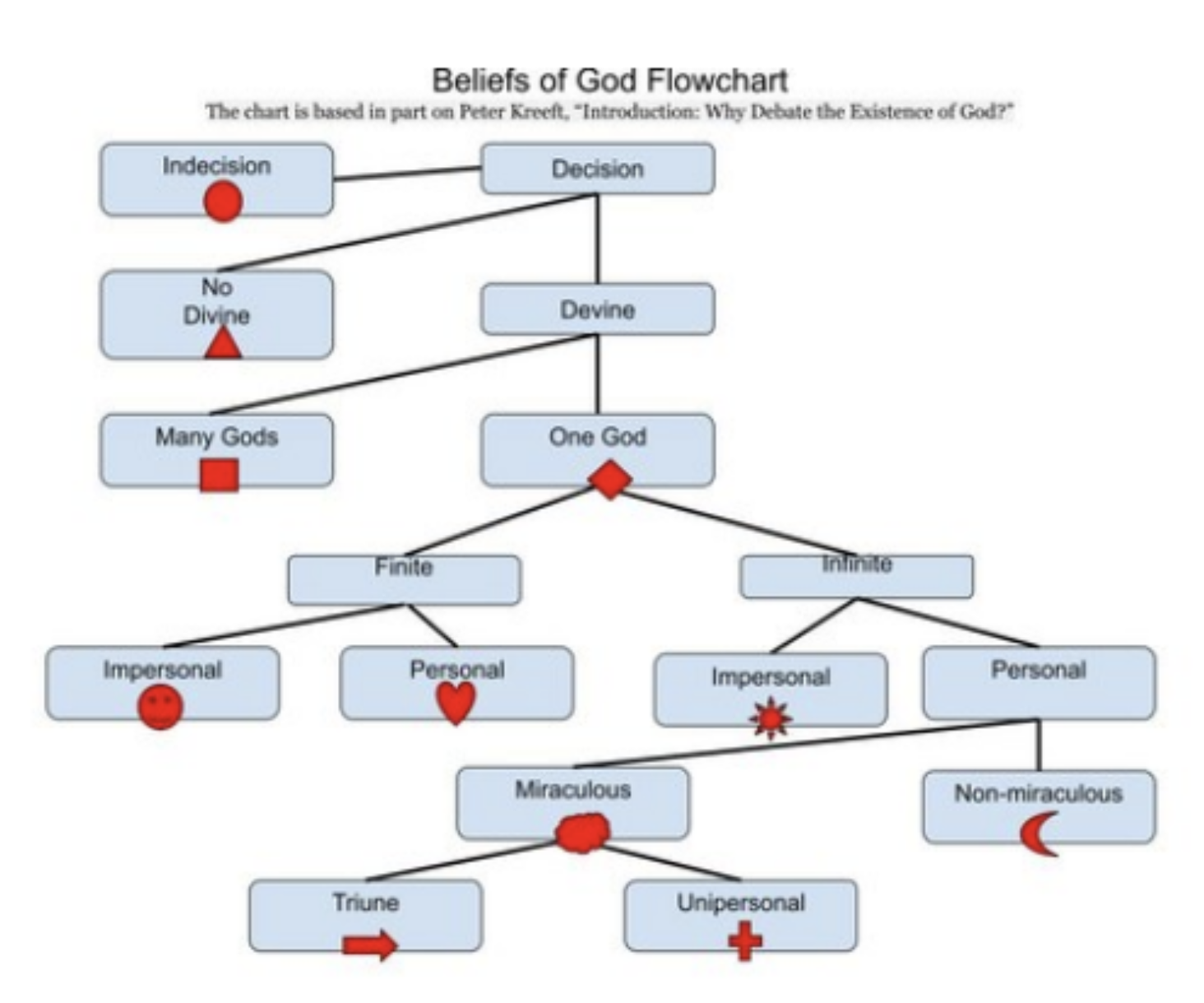
Heart
Finite Godism
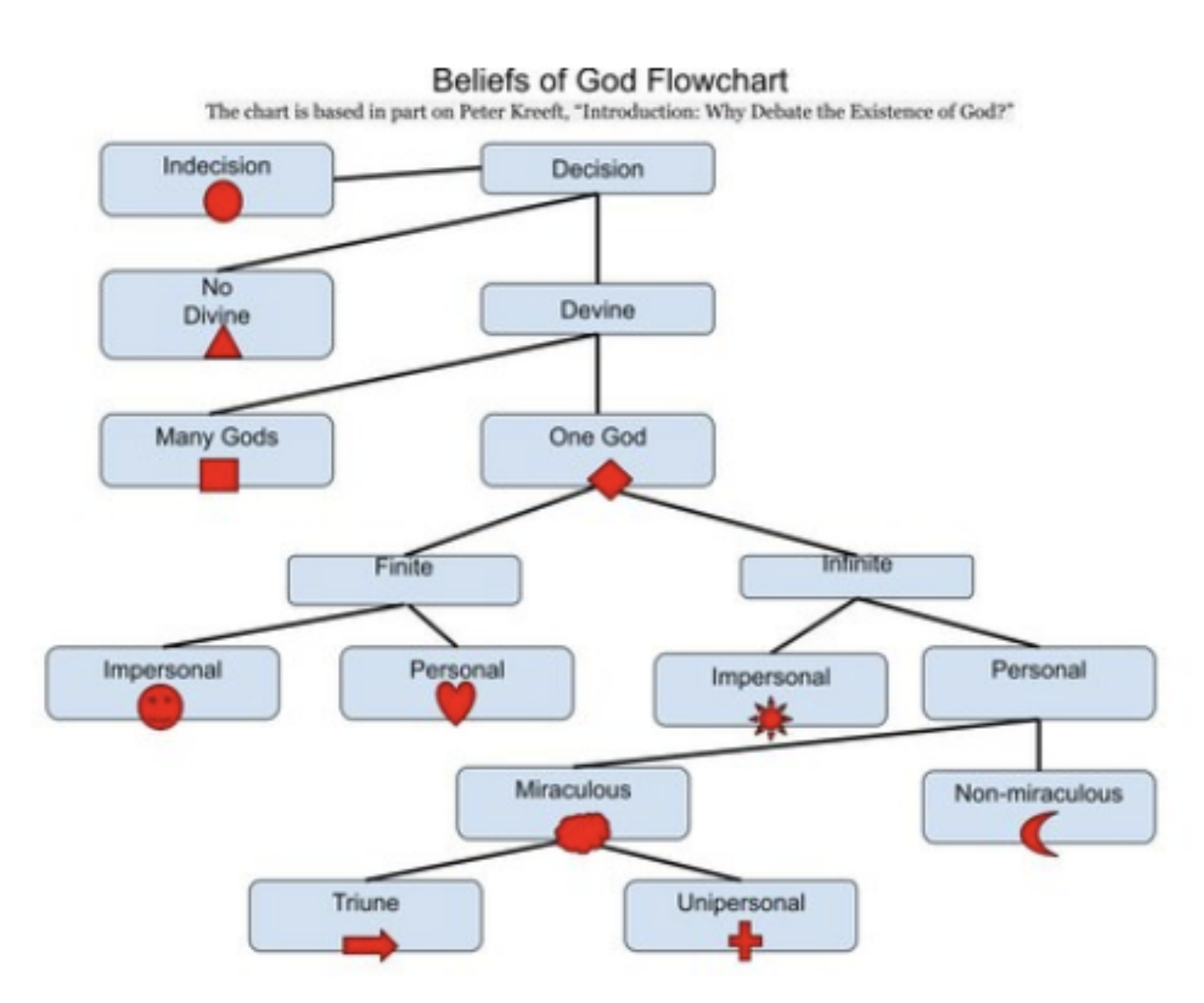
Sun
Pantheism
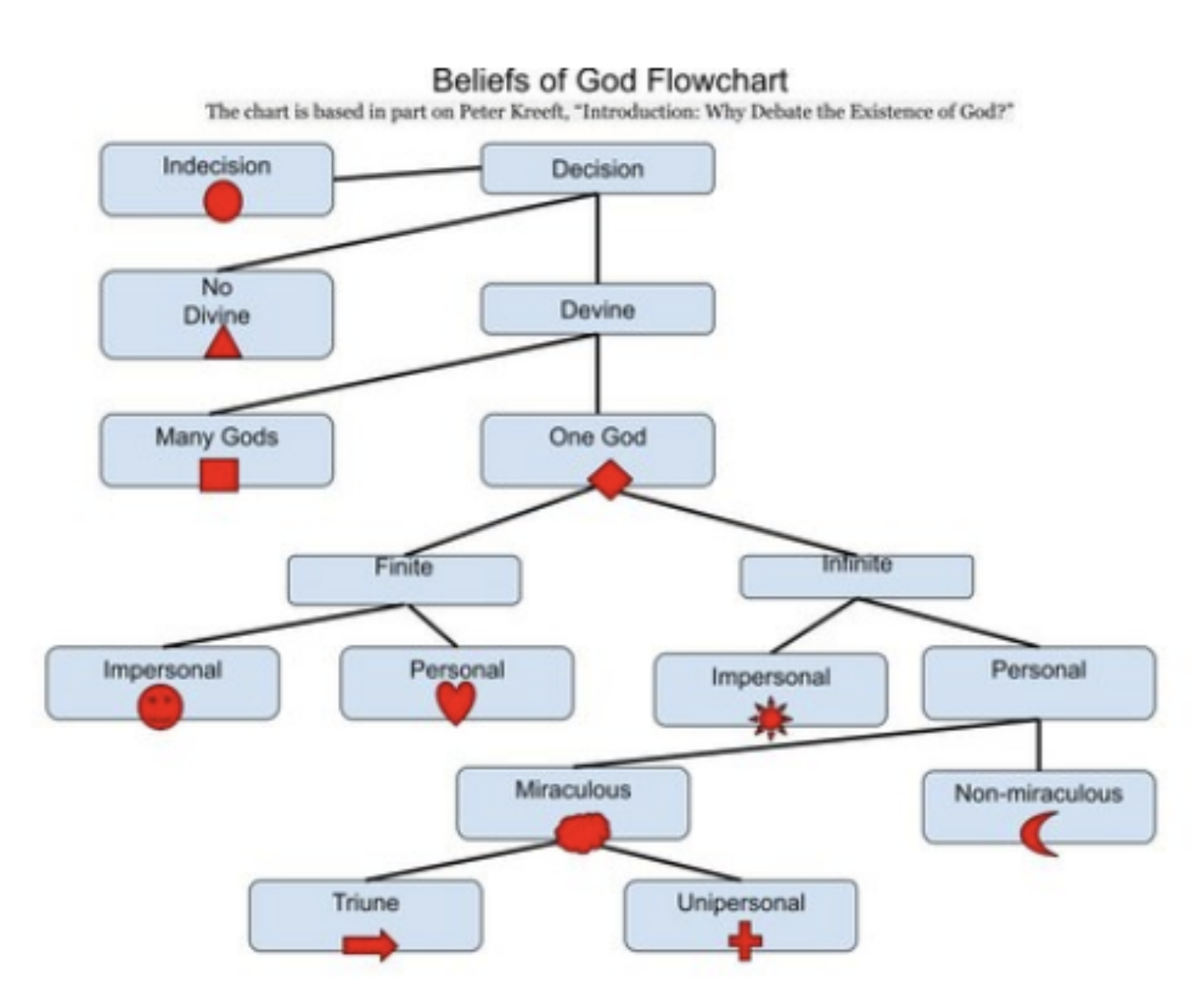
Cloud
Theist
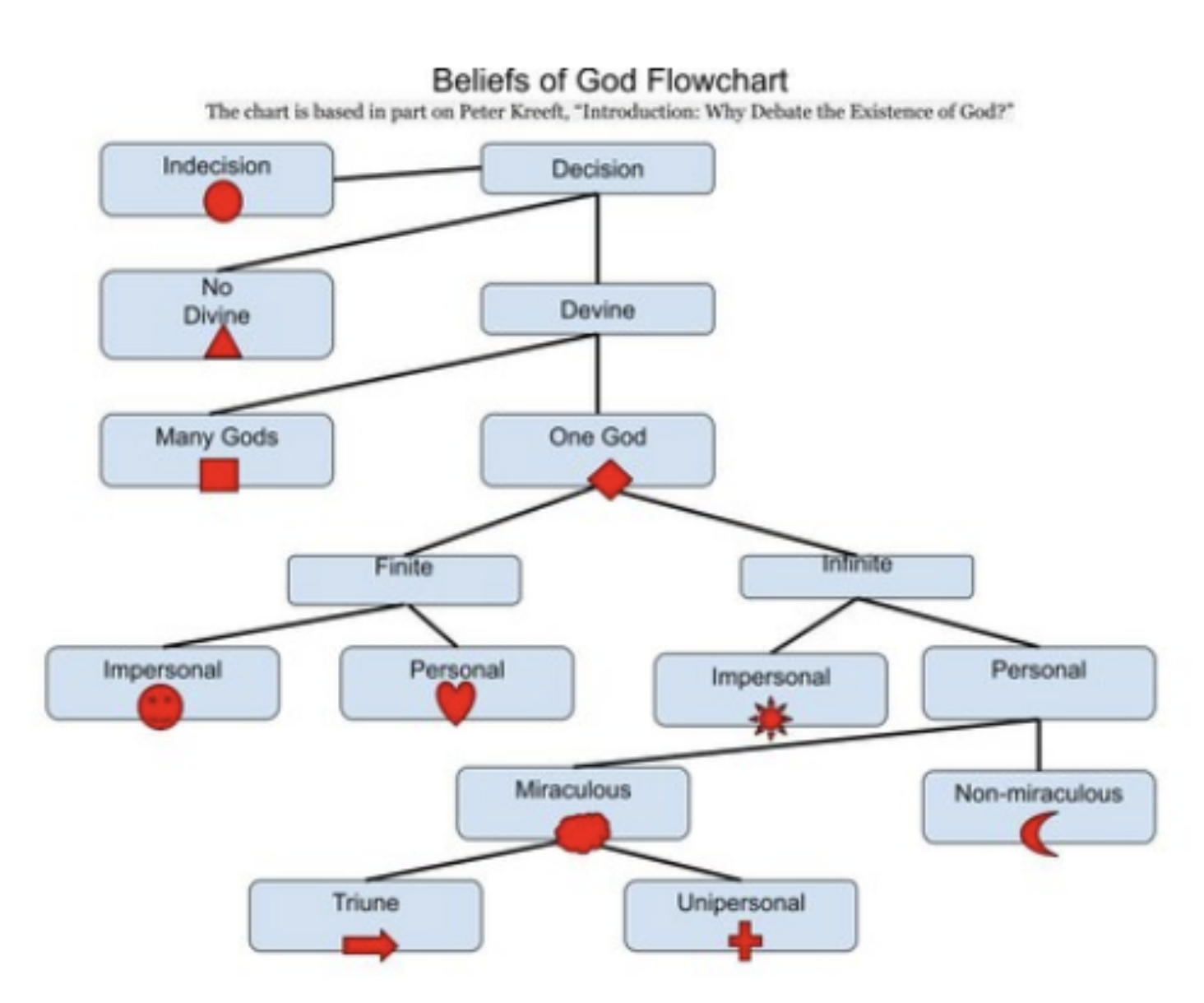
Moon
Deist
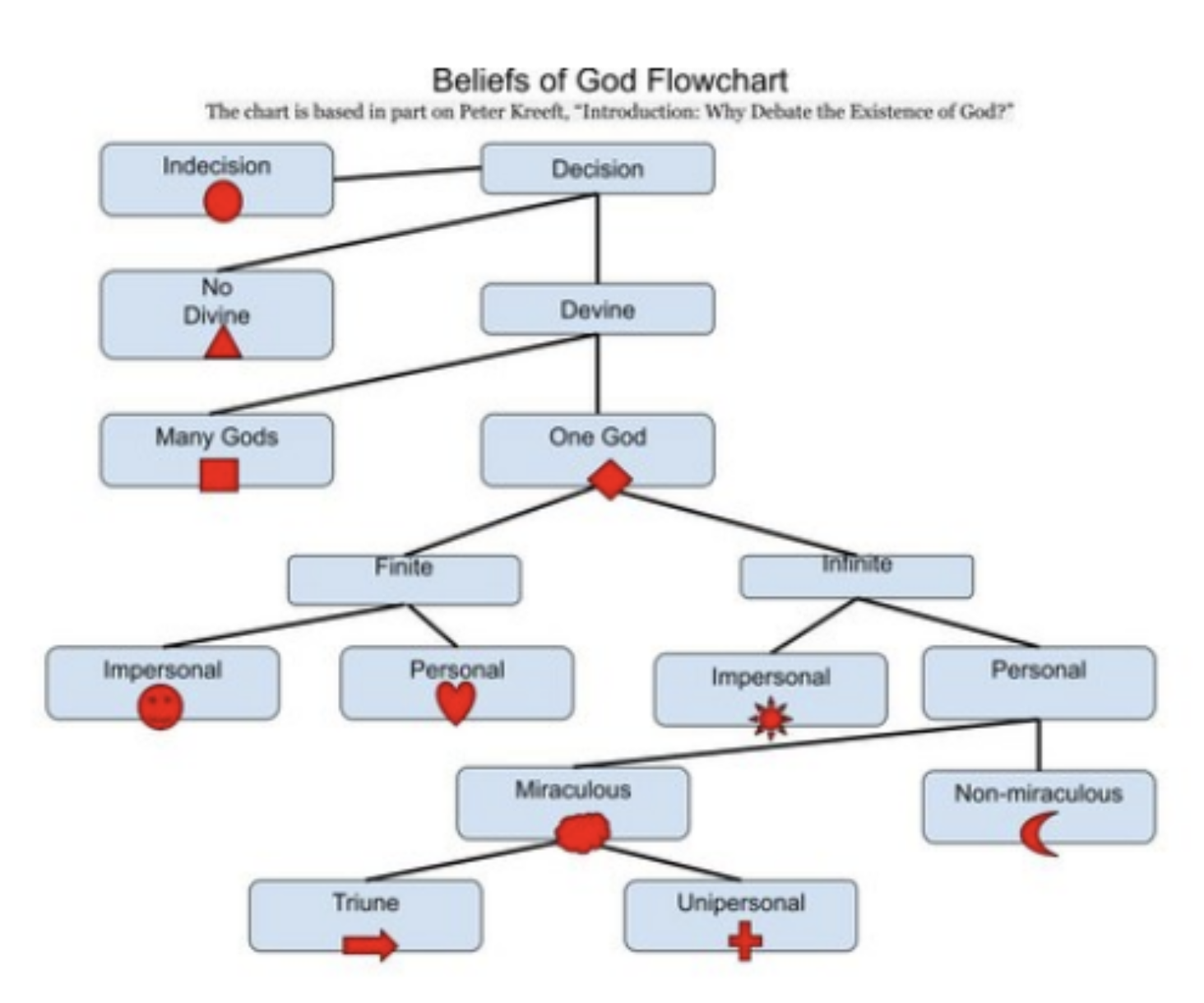
Arrow
Christian Theist
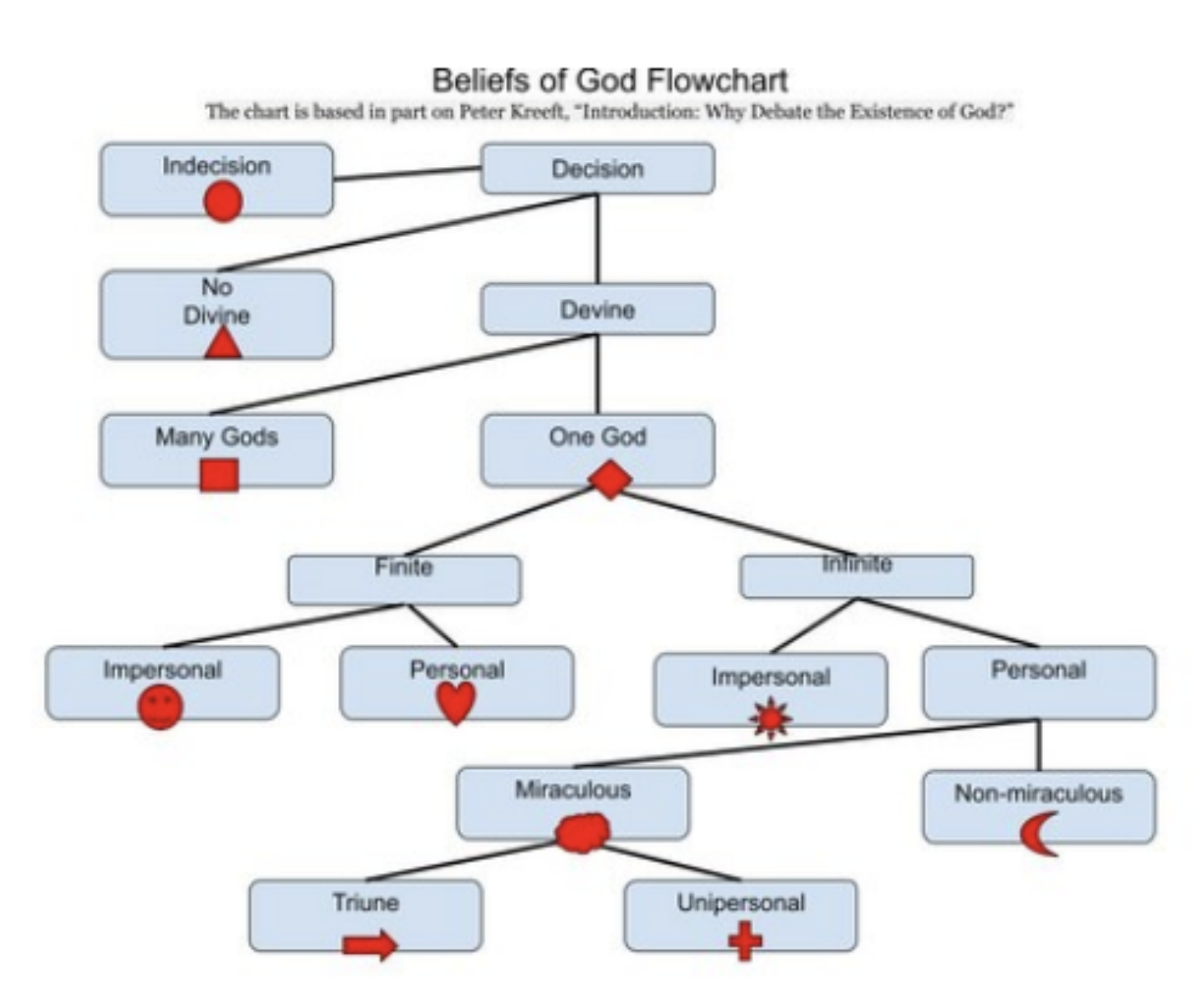
Plus sign
Unitarian
Christian evidentialism is primarily
inductive
The evidence never provides certainty, but it does find claims to be
probable
Evidentialism is counter-cultural to
modernism and religious pluralism
A real book, written at a real time, about real places and events should
have real historical evidence
Seeks to determine whether the existing or extant copies of a document are reliable reproductions of the wording of the original document
Bibliographical test
Considers the claims of the writings as to their historicity and internal consistency
Internal test
Asks whether the testimony of the biblical writings is corroborated or undermined by extra biblical sources
External test
A legitimate prophecy must
be clear
Legitimate prophecies have to be given
before the event has transpired
A legitimate prophecy cannot be
fulfilled by actions of the prophet himself
A legitimate prophecy must be either
uniquely specific or long-range as to be remarkable
It’s unacceptable for a prophet to be
wrong in his prophecies sometimes
All spiders have eight legs. A tarantula is a spider. Therefore, tarantulas have eight legs.
Deductive
All mammals have backbones. Humans are mammals. Humans have backbones.
Deductive
God is ever-present all the time. I am in the present. God is present with me
Deductive
“If anyone is in Christ they are a new creation. The old has passed away and the new has come” - 2 Cor 5:17.
I am in Christ. Therefore I am a new creation.
Deductive
All scripture is inspired by God. The book of Acts is scripture. The book of Acts is inspired by God
Deductive
The Father is referred to in the Bible as God. The Holy Spirit is referred to in the Bible as God. Jesus is referred to in the Bible as God. God is revealed in three persons.
Inductive
In Hebrews 11, the chapter references 15 individuals who were commended by God for their faith. God commends those who have faith.
Inductive
In Hebrews 11, God commends people of faith. If I have faith, God will commend me.
Inductive
We’ve had 3 dogs that we’ve gotten from a shelter. All three dogs have been great pets. Shelter dogs make great pets.
Inductive
Another name for Reformed Apologetics is
Presuppositionalism
Reformed apologetics works on the assumption that God’s Word is
True and Authoritative
Reformed apologetics is heavy on
deductive reasoning
Reformed apologetics believes that the human mind is NOT capable of determining
on its own what is true and what is right
Reformed apologetics believes that all true knowledge is
constructed within a Biblical Foundation
All works and words of God are
contrary to reason
The passions of the soul trouble the senses and makes false impressions upon them. Therefore, reason
cannot be fully trusted
Strengths of Fideism
Emphasizes the personal dimension of God and his revelation
Takes seriously the limitations of human reason and knowledge
Centers the Christian witness in apologetics on Christ
Weaknesses of Fideism
Pits the personal against the basis of truth claims
Underestimates the role of reason and knowledge in faith
Unnecessarily undermines confidence in the Bible